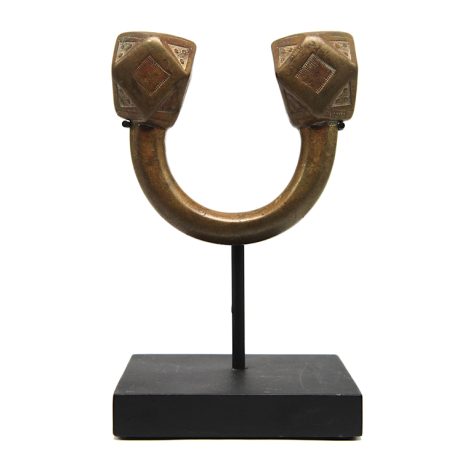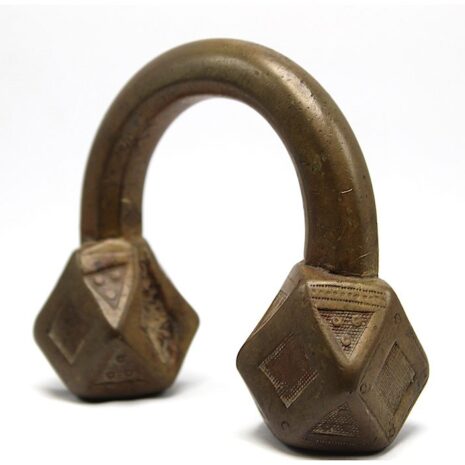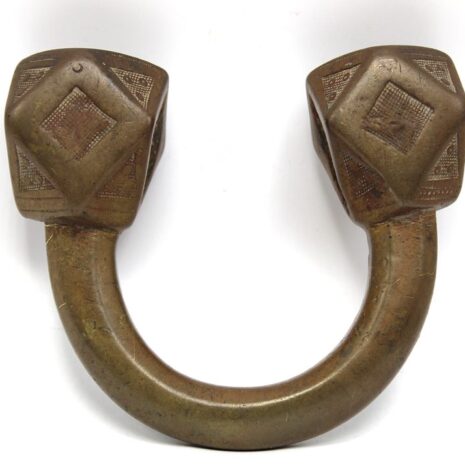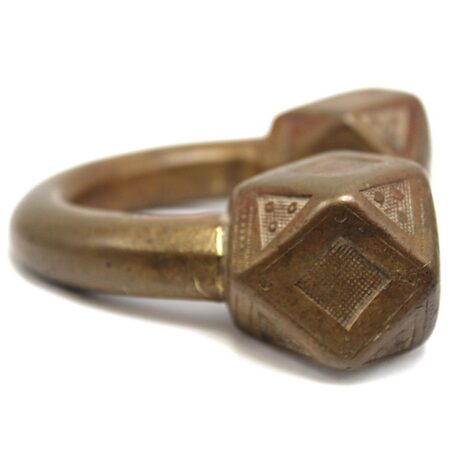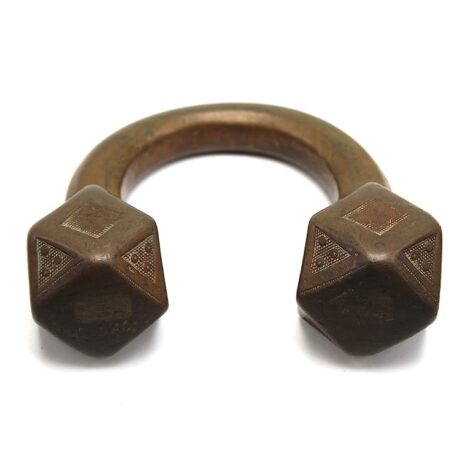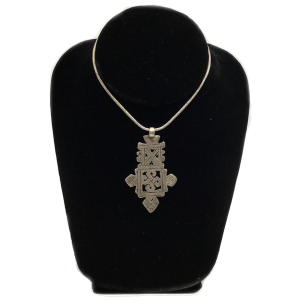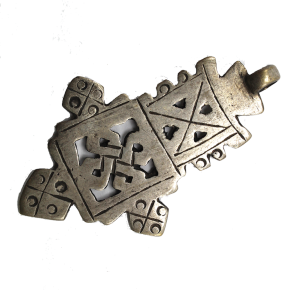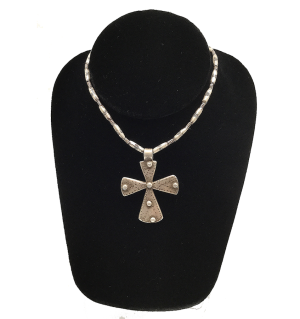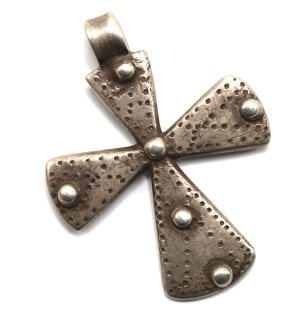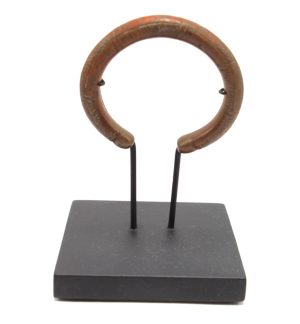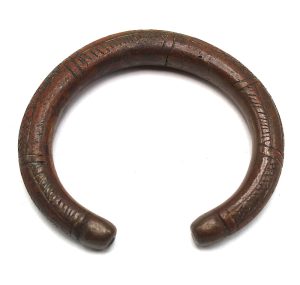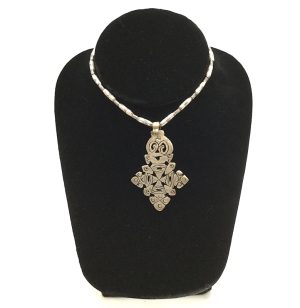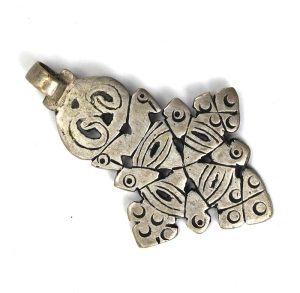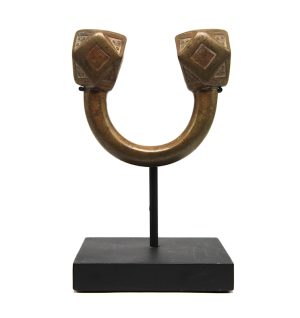Antique Tuareg King Manilla Currency/Slave Bracelet, North/West Africa, (3161YOE) $325
$325.00
Ht: 4″ W: 4.6525″ Thick: 1.5″ Circum: 10.5″ | FREE SHIPPING WITHIN CONTINENTAL U.S.!
This 19th century Tuareg “king” manilla bracelet/anklet made from brass, copper and iron in the shape of horseshoe is a magnificent example of African metalwork composed of massive flat finials with 10 facets. Adorned with traditional raised finely detailed etched and hammered cross-hatched designs, diamond shapes, triangles and circles, this fine piece is excellent condition with appropriate signs of age and use and comes with a wood and metal stand.
Description
For centuries, the Tuareg were nomadic tribal people who traversed the Sahel region and Saharan Africa Desert. Like most African peoples, they created arm and ankle bracelets to serve as symbols of wealth, status, wearable adornments, for ceremonies of births, coming of age, marriages and burials, trade for animals and agricultural goods and as a medium of exchange where there were no banks or conventional currency exchange systems. Each Tuareg tribe used unique symbols and decorative motifs passed down for generations. Dassine Oult-Yemma, the Poet of the Ahaggar, explained that sticks indicate legs of men, camels and other animals, crosses or x’s indicate guiding signals at roads and circles have a spiritual meaning. “We start from our heart, and move from circle to circle ever more widely, into the Circle of Life, like the horizon circles around you and your herd.” (Hagan and Meyers). This 19th century Tuareg “king” manilla bracelet/anklet was fashioned using a sand mold into a distinctive shape. King manillas are large curved bars made from brass, copper and iron in the shape of a horseshoe and are typically less curved than smaller manillas that resemble an open bracelet. Composed of massive flat finials with 10 facets with raised diamond shapes and fine hand-etched and hammered cross-hatched designs and triangles with raised circles, large pieces like this were never worn and were used for trade and status purposes. During the colonization of Africa in the 1500s, the British, French, Portugese, Belgians and Dutch appropriated these bracelets and manufactured their own versions they named manillas which were used for the slave trade.This manilla is in excellent condition with appropriate signs of age and use and comes with a wood and metal stand.
Click here for the Blog Manillas: Former African Trade Currency.
Sources
Helen E. Hagan and Lucile Meyers, Tuareg Jewelry: Traditional Patterns and Symbols, Xlibrus Corporation, 2006.
Additional information
| Place of Origin | Africa |
|---|---|
| Period | Antique (1200-1920) |
| Date | 19-20th Century |
| Materials and Technique | Bronze/brass/copper alloy |
| Dimensions (inches) | H: 4” W: 4.625” Thick: 1.5” Circum: 10. 5” |
| Dimensions (metric) | H: 10.16 cm W: 11.73 cm Thick: 3.81 cm Circum: 25.78 cm |
| Weight | 22.9 oz |
| Condition | Excellent, fine patina demonstrating age and use |
| Item Number | 3161YOE |

